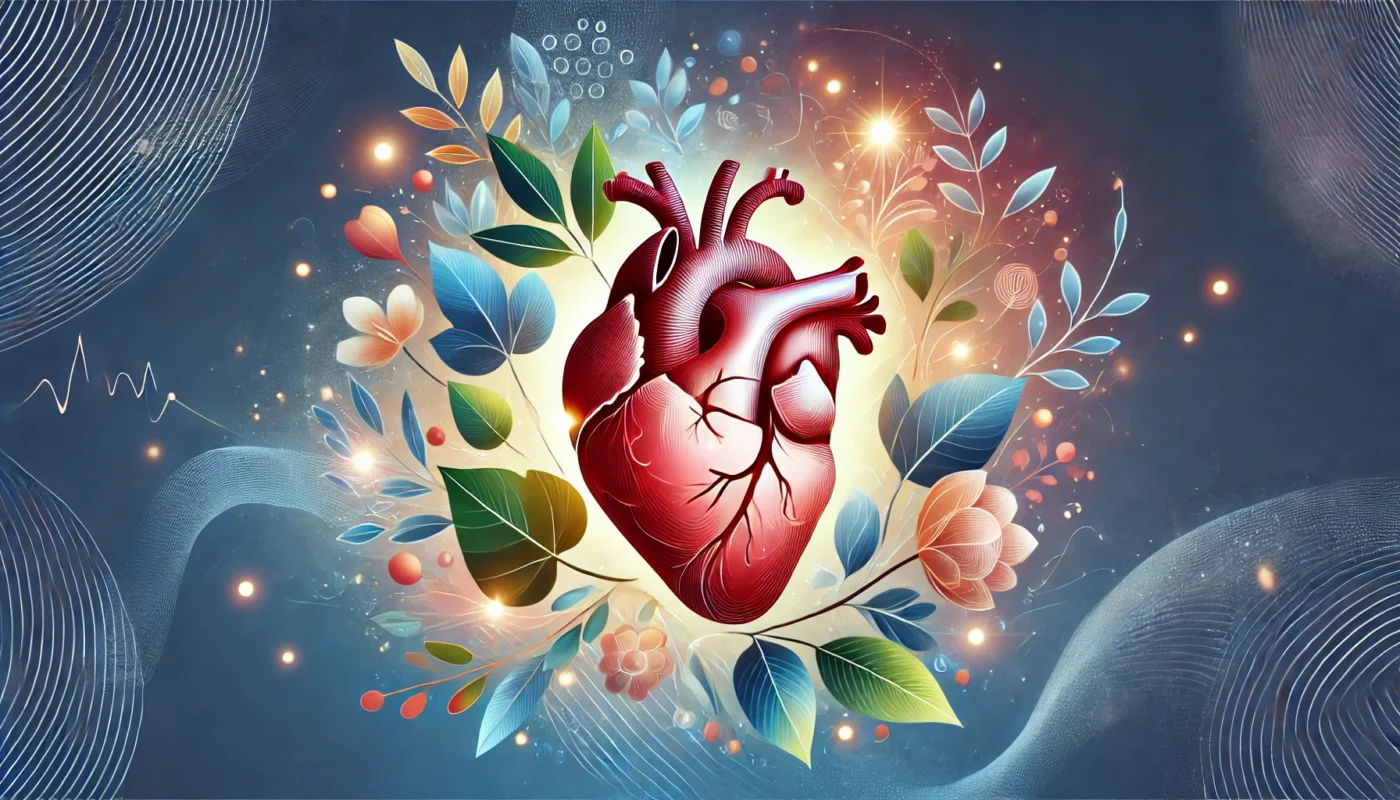Hypertension, or high blood pressure, is a global health concern that significantly increases the risk of heart disease, stroke, and kidney failure. While conventional treatments like medication, dietary changes, and exercise are vital for managing hypertension, emerging research highlights the role of psychological practices in improving cardiovascular health. Among these, gratitude journaling—a simple practice of reflecting on and recording moments of thankfulness—has gained attention for its potential to reduce stress, lower blood pressure, and enhance overall well-being. This article explores the connection between gratitude, stress reduction, and hypertension management, supported by evidence-based insights and practical strategies for incorporating gratitude practices into daily life.
You may also like: Magnesium Glycinate for Painful Periods: A Holistic Relief Strategy
The Connection Between Stress and Hypertension – Help Lower Hypertension
How Stress Influences Blood Pressure
Stress activates the body’s fight-or-flight response, triggering the release of hormones like cortisol and adrenaline. While this response is essential for short-term survival, chronic stress can keep the body in a state of heightened arousal, leading to sustained vasoconstriction, elevated heart rate, and increased blood pressure.
The Role of Chronic Stress in Hypertension
Chronic stress is a significant risk factor for hypertension. It contributes to:
- Vascular Dysfunction: Prolonged stress damages the endothelium (blood vessel lining), impairing its ability to regulate blood pressure.
- Unhealthy Coping Behaviors: Stress often leads to behaviors like overeating, smoking, and alcohol consumption, which exacerbate high blood pressure.
- Sleep Disruption: Stress-related insomnia or poor-quality sleep negatively impacts blood pressure regulation.
Evidence Linking Stress Reduction to Blood Pressure Control
Studies confirm that managing stress effectively can lead to measurable reductions in blood pressure. For instance, a 2018 study in Hypertension found that individuals who participated in stress management programs experienced an average reduction of 5–7 mmHg in systolic blood pressure, underscoring the importance of psychological interventions.
The Science of Gratitude and Its Impact on Health
What Is Gratitude?
Gratitude is the practice of recognizing and appreciating positive aspects of life, whether big or small. It involves a conscious focus on the good things in one’s life and cultivating an attitude of thankfulness.
Psychological Benefits of Gratitude
Gratitude promotes psychological well-being by:
- Reducing Negative Emotions: Gratitude counteracts feelings of envy, resentment, and frustration.
- Enhancing Emotional Resilience: It improves coping mechanisms during challenging situations.
- Promoting Positive Relationships: Expressing gratitude strengthens social bonds and increases feelings of connection.
Physiological Effects of Gratitude
Gratitude also has measurable effects on physical health:
- Reduced Stress Hormones: Gratitude lowers cortisol levels, reducing the physiological stress response.
- Improved Heart Rate Variability (HRV): Enhanced HRV indicates better autonomic nervous system regulation, a key factor in blood pressure control.
- Lower Systemic Inflammation: Chronic inflammation contributes to hypertension, and gratitude practices have been shown to reduce markers of inflammation.
Evidence: A study in Psychosomatic Medicine (2019) found that individuals who practiced gratitude journaling for eight weeks experienced significant reductions in systolic blood pressure and stress hormone levels.

Gratitude Journaling: A Tool for Managing Hypertension
What Is Gratitude Journaling and why can it help lower hypertension?
Gratitude journaling involves writing down things you are thankful for daily or weekly. This practice helps shift focus from stressors to positive experiences, fostering a sense of contentment and reducing stress.
How It Works:
- Reflect on positive events, relationships, or aspects of your life.
- Write down three to five things you’re grateful for, with specific details.
- Review past entries to reinforce feelings of gratitude.
Mechanisms of Action
Gratitude journaling lowers blood pressure through:
- Stress Reduction: By promoting positive emotions, gratitude reduces the activation of the sympathetic nervous system, which lowers blood pressure.
- Improved Sleep: Gratitude practices enhance sleep quality, which is crucial for blood pressure regulation.
- Enhanced Self-Care Behaviors: A gratitude mindset encourages healthier lifestyle choices, such as regular exercise and balanced eating.
Try out magnesium glycinate for hypertension support—Buy Now on Amazon!

Evidence Supporting Gratitude Practices for Hypertension
Clinical Studies on Gratitude and Cardiovascular Health
- Randomized Controlled Trials:
A 2020 study in Frontiers in Psychology showed that participants who maintained a gratitude journal for eight weeks experienced a 5% reduction in systolic blood pressure compared to a control group. - Mind-Body Medicine Research:
Research published in The Journal of Behavioral Medicine (2017) found that gratitude practices improved HRV and reduced hypertension-related anxiety, leading to better blood pressure control. - Population Studies:
Data from the National Health and Aging Trends Study revealed that older adults who regularly expressed gratitude had a 15% lower risk of developing hypertension than their peers.
Practical Tips for Incorporating Gratitude Journaling
Getting Started with Gratitude Journaling to help lower hypertension
- Choose a Journal: Select a notebook or digital app dedicated to gratitude journaling.
- Set Aside Time: Dedicate 5–10 minutes daily, ideally before bed, to reflect on positive aspects of your day.
- Be Specific: Instead of writing general statements like “I’m thankful for my health,” specify something concrete, such as “I’m thankful for being able to walk in the park today.”
- Focus on Emotions: Reflect on how each experience made you feel, as this deepens the emotional connection to gratitude.
Maintaining the Practice
- Set Reminders: Use alarms or calendar notifications to establish consistency.
- Share Gratitude: Discuss what you’re thankful for with family or friends to amplify positive emotions.
- Combine with Relaxation Techniques: Pair journaling with mindfulness or deep breathing exercises for added benefits.
Complementary Strategies for Stress and Hypertension Management
1. Mindfulness Meditation
Mindfulness involves paying attention to the present moment without judgment. It reduces stress and promotes relaxation, lowering blood pressure.
- Evidence: A 2019 review in Current Hypertension Reports found that mindfulness meditation reduced systolic blood pressure by 5 mmHg on average.
2. Physical Activity
Exercise reduces stress hormones, improves mood, and strengthens the cardiovascular system.
- Recommendation: Engage in moderate aerobic activity, such as walking or cycling, for at least 150 minutes per week.
3. Social Connections
Expressing gratitude in relationships strengthens bonds and provides emotional support, reducing stress.
- Actionable Tip: Write thank-you notes or express appreciation to loved ones regularly.
Manage hypertension with the help of L-Theanine—Buy Now on Amazon!

Nutritional Supplements to Support Stress and Cardiovascular Health
Supplements can complement gratitude practices by reducing stress-related inflammation and supporting heart health. Below are five evidence-based options:
1. L-Theanine
L-theanine promotes relaxation without sedation, reducing stress-related blood pressure spikes. Research in The Journal of Nutrition (2017) found that L-theanine reduced stress-induced increases in blood pressure.
2. Magnesium Glycinate
Magnesium helps relax blood vessels and supports nervous system function. A study in Magnesium Research (2016) found that magnesium supplementation reduced systolic blood pressure by 5 mmHg.
3. Coenzyme Q10 (CoQ10)
CoQ10 is a powerful antioxidant that protects against oxidative stress and improves endothelial function. A trial in Hypertension Research (2007) demonstrated that CoQ10 supplementation reduced blood pressure by 10 mmHg.
4. Omega-3 Fatty Acids
Omega-3s reduce inflammation and promote cardiovascular health. A meta-analysis in Hypertension (2018) reported reductions of 4 mmHg in systolic blood pressure with omega-3 supplementation.
5. Hibiscus Extract
Hibiscus enhances nitric oxide production, improving vascular health. A study in The Journal of Nutrition (2010) found that hibiscus tea reduced systolic blood pressure by 6 mmHg.
The Long-Term Benefits of Gratitude Practices
Gratitude journaling offers more than just temporary relief from stress. When practiced consistently, it fosters a positive outlook, strengthens emotional resilience, and enhances overall well-being. For individuals with hypertension, this simple yet powerful practice can serve as a complementary tool to traditional treatments, promoting better blood pressure control and reducing the risk of complications.
Conclusion
Gratitude journaling is a scientifically supported practice with profound psychological and physiological benefits for helping lower hypertension. By reducing stress, improving emotional well-being, and promoting healthier behaviors, gratitude practices can complement traditional approaches to blood pressure management. Coupled with mindfulness, physical activity, and targeted nutritional supplements, gratitude journaling empowers individuals to take a holistic approach to their heart health. Simple, accessible, and effective, this practice offers a path toward lower blood pressure and a more positive outlook on life.

References
- Health Benefits of Gratitude. Retrieved from: https://www.uclahealth.org/news/article/health-benefits-gratitude
- Gratitude Enhances Health, Brings Happiness — and May Even Lengthen Lives. Retrieved from: https://www.health.harvard.edu/blog/gratitude-enhances-health-brings-happiness-and-may-even-lengthen-lives-202409113071
- Giving Thanks Can Make You Happier. Retrieved from: https://www.health.harvard.edu/healthbeat/giving-thanks-can-make-you-happier
Important Note: The information contained in this article is for general informational purposes only, and should not be construed as health or medical advice, nor is it intended to diagnose, prevent, treat, or cure any disease or health condition. Before embarking on any diet, fitness regimen, or program of nutritional supplementation, it is advisable to consult your healthcare professional in order to determine its safety and probable efficacy in terms of your individual state of health.
Regarding Nutritional Supplements Or Other Non-Prescription Health Products: If any nutritional supplements or other non-prescription health products are mentioned in the foregoing article, any claims or statements made about them have not been evaluated by the U.S. Food and Drug Administration, and such nutritional supplements or other health products are not intended to diagnose, treat, cure, or prevent any disease.

